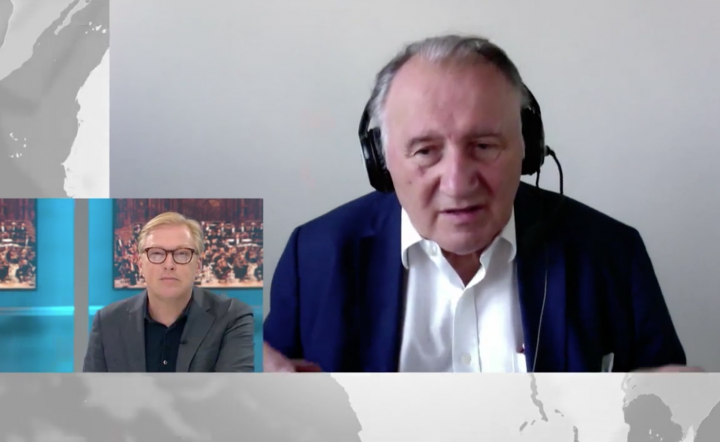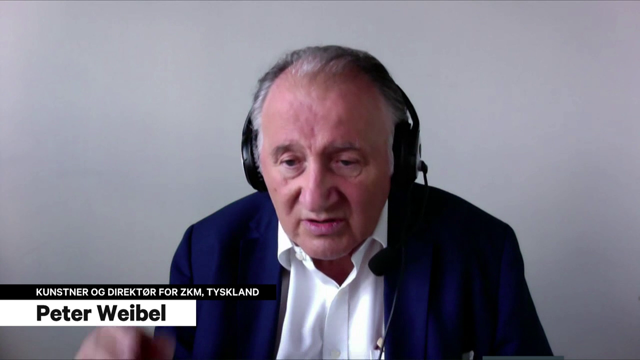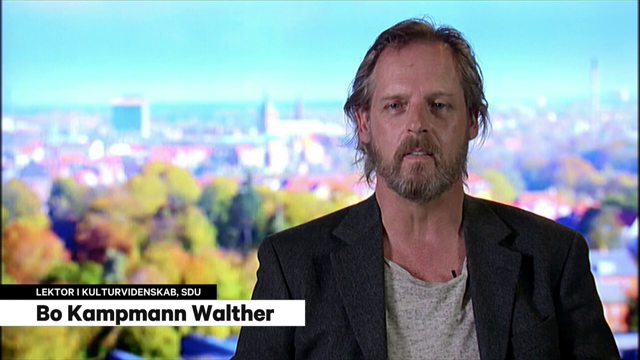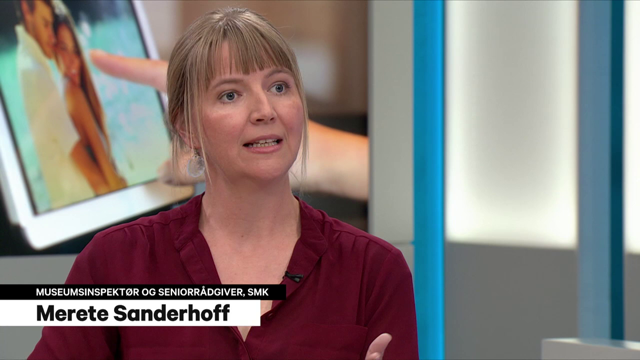Peter Weibel on the Tele-Society
Interview on the TV Show »deadline«
In an interview with host Steen Nørskov in the Danish TV program »deadline« on July 4, 2020, Peter Weibel, artistic-scientific director of ZKM, talks about his thesis of the »Ferngesellschaft« (tele-society) and new concepts for art and culture after the Corona pandemic.
Other guests at the show included Merete Sanderhoff, senior advisor and curator at the Statens Museum for Kunst (SMK) and Bo Kampmann Walther, lecturer at the Department of Cultural Studies at Syddanske Universitet, Odense.
As a guest on »deadline«, Peter Weibel explains how the Corona crisis has made it apparent that we have long since been living in a »tele-society«. A tele-society in which the feeling of community that we experience when we meet in a cultural context – for concerts, plays, soccer matches – is only an illusion.
According to Weibel, the central principle of this tele-society is the separation of messenger and message. This is made possible by teletechnology or long-distance technology (radio, television, fax, internet, telegraphy...): whereas before it took a messenger to deliver a message by physical means – be it man, carrier pigeon or train – communication can now take place without the transmission by a messenger.
Peter Weibel
»All technology is essentially remote technology: overcoming the limits of proximity.«
In a time of recurring pandemics, even after Covid-19, the tele-society will develop new concepts in the field of art and culture, where it is not necessary for people to gather crowded in theaters, concert halls or soccer stadiums. As a society, we have not yet fully understood that such physically present crowds are not even necessary anymore: when we talk about soccer »ghost matches«, we are obscuring the fact that the millions of non-local spectators in front of the TV sets are not only just as real, but even commercially much more important than the few thousand in the stadium.
Peter Weibel
»When we speak of 'ghost matches' today, it shows a bewitching of the mind by language: the spectators in front of the screens are just as real as the spectators in the stadium.«
In new concepts for the museums, concerts, sports events of the tele-society, on the other hand, both local and non-local visitors could be integrated through the physical and the virtual complementing each other. Theaters, for example, could become spaces in which people can move freely and where physical scenes are interlaced with virtual ones. In this way, parallel physical and virtual worlds of speech, sound and images are created – but the »peep-box stage« as we have known it until now will no longer be possible in the future.
The following interview guest Bo Kampmann Walther, lecturer at the Department of Cultural Studies at Syddanske Universitet Odense, objects in the discussion of Weibel's theses that museums and soccer are part of a spectacle culture that needs the physical presence of an audience to stage the contents. While building a stadium alone does not make economic sense, the stadium as well as the physical audience are relevant to the media market to stage the spectacle of sports for the masses. Essentially, however, he agrees that in an attempt to continue to depict pre-Corona reality, the media has become a play or video game.
Merete Sanderhoff, senior consultant and curator at the Statens Museum for Kunst (SMK), agrees with Weibel that digital visits to museums must no longer be seen as a mere accessory, but as a fully-fledged counterpart to physical visits – and the museum has learned a lot about the technological implementation of this in recent months. However, while local and non-local forms of visitation are equivalent, they are also fundamentally different in their effects: Digital concepts allow for a more diverse and in-depth engagement with a museum's complete collection regardless of one's locality; the value of physical visits, on the other hand, lies more in the social experience, in the encounter between people and people as well as people and art, in the experience of space and time. Last but not least, digitization gives everyone a voice and thus democratizes the cultural sector – we should keep this up after Corona.



